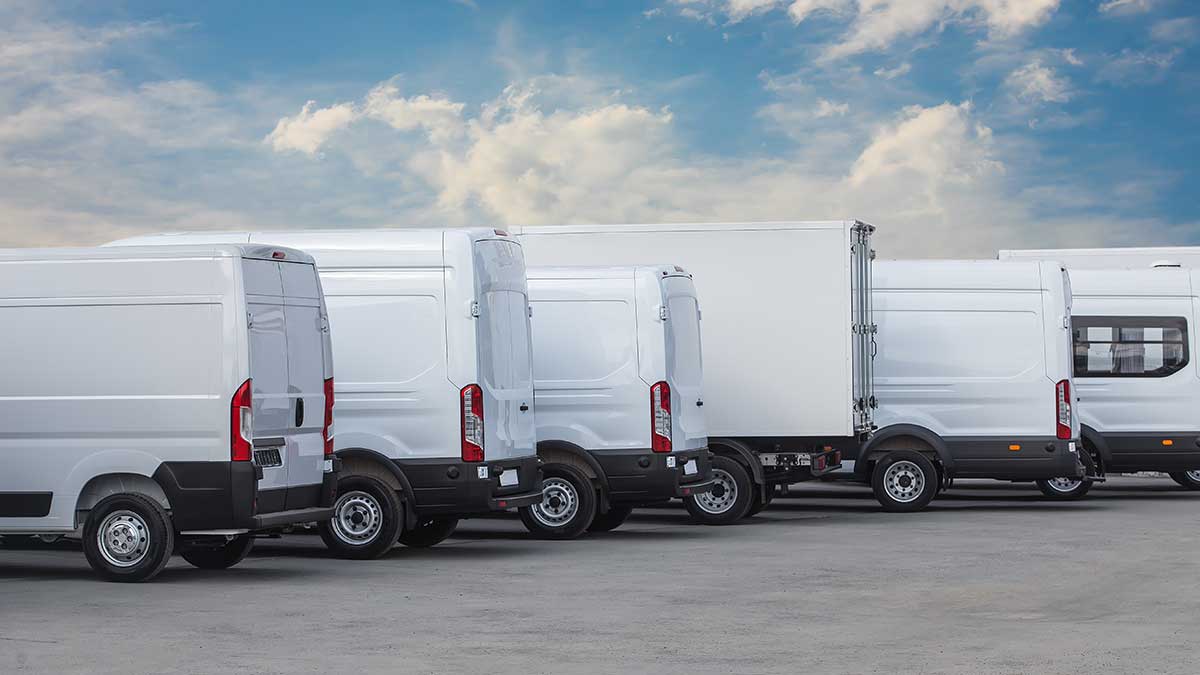Have you ever heard of Fleet Insurance?
You probably have, but it’s likely that you’re not 100% sure what a Fleet Policy actually entails.
Typically, businesses that take advantage of a Fleet Policy due to their large number of trucks, vans, and service vehicles that they use to operate their business.
You might be asking:
- What are the benefits of a Fleet Insurance Policy?
- What types of businesses typically operate a Fleet?
- Do I need a Fleet Insurance Policy?
- What does this type of policy cover?
Let’s dive in!
What Are the Benefits?
On many insurance policies, each vehicle has its own policy with its own assigned drivers. When dealing with a household with a few cars and a few drivers, this is adequate and ideal for many individuals. However, with a business, this can get quite cumbersome.
Since many businesses operate multiple vehicles with sometimes 10+ potential drivers, a Fleet Policy is designed to simplify the insurance process and judge the risk more effectively. Instead of assigning specific drivers to specific vehicles and judging the risk of accidents, the insurance company will take all of the vehicles, and all of the drivers and put them into one big bucket.
The result is a Fleet Insurance Policy.
The two main benefits of a Fleet Policy are simplicity and customization.
Because businesses have a wide array of tools, specialty vehicles, and liability risks, having customization is of the utmost importance. There is specialty equipment, often many drivers, and unique risks associated with business vehicles. Being able to select the exact coverages you need for the exact assets to be covered is absolutely key.
While it feels counter-intuitive to say simplicity after “customization” it is important. Having the simplicity to make changes to the entire fleet all at once, rather than on each individual vehicle’s policy, saves time and effort. Could you imagine adding a new employee as a driver individually for twenty different vehicles?
No! Neither can we.
What type of businesses need fleet insurance?
Businesses in all types of industries utilize fleet insurance policies to keep their vehicles and tools insured.
Typically if you have more than four vehicles that are used for business, you should consider a fleet insurance policy over a traditional policy. Many insurance companies offer different rates once the vehicle count goes above four.
Some industries that typically utilize fleet insurance are:
- Construction.
- HVAC
- Contractors
- Plumbers
- Equipment Dealers
- Security
- Arborists
- Pest Control
- Landscaping
- Universities
- Home Services
Any business can utilize a fleet policy, so the list above is certainly not exhaustive.
What do these types of policies cover?
These policies operate similar to a standard auto insurance policy, with some extra coverage options in addition to the benefits we wrote about above. The main coverages on the policy are:
- Liability = Pays for the other person’s damage and your legal costs if you or your employee is at fault in an accident.
- Uninsured/Underinsured Motorist = Pays for the medical bills and sometimes repair to your vehicle if someone who doesn’t have insurance, or enough insurance causes damage.
- Physical Damage = Also known as Comprehensive and Collision, this coverage repairs your vehicle if you’re in an accident.
- Roadside Coverage = Similar to AAA, this coverage helps you or your employees if their car is broken down on the side of the road.
- Cargo/Tool Insurance = This coverage will cover your tools and cargo that is unique and special to your business.
Do I need a fleet insurance policy?
If you have four or more vehicles, and they are owned and/or operated by the business, you should consider a fleet policy.
Whether you have a fleet policy already and want to compare rates, or you’re in need of a policy, we’d be happy to connect you to a top insurance agent.
Click “Get a Quote” below to get started.
Get a Quote
